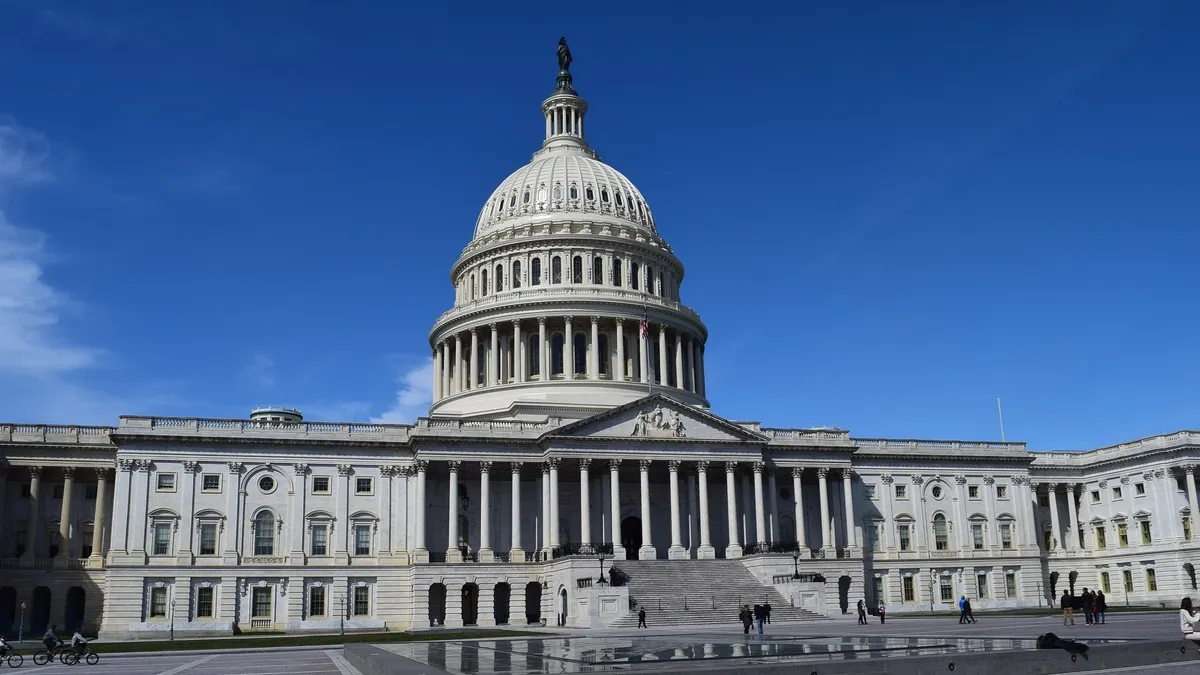Dive Brief:
- Bipartisan legislation introduced last month would extend two tax credits that support residential energy efficiency, joining several other federal bills aimed at efficiency.
- The Home Energy Savings Act would reinstate and extend the energy efficiency credit through 2026, boosting homeowner incentives to make energy efficiency upgrades. Similarly, the New Home Energy Efficiency Act would reinstate and extend the 45L tax credit for home builders through 2022.
- But the outlook for the credit extensions is unclear as Congress debates government funding ahead of a Nov. 21 deadline. With lawmakers struggling to reach consensus, a short-term funding bill is one way to keep the government funded, but would leave out efficiency and other tax credit extensions.
Dive Insight:
Supporters are holding out hope for a comprehensive funding bill. Tax credit extensions impact a host of industries, and because many of those extensions lapsed in 2017, approving them now may be their last hope for revival.
If there is bipartisan, bicameral agreement on tax issues, there's no reason it shouldn't be able to pass as part of a continuing resolution, according to Ben Evans, vice president of government affairs and communications for the Alliance to Save Energy (ASE).
"I think they have a good chance," Evans told Utility Dive. "There's a lot of talk of a tax package, a lot of things members on both sides of the aisle want to get done."
The Home Energy Savings Act, S.2588, would modernize the product-specific efficiency standards in section 25C of the tax code, boosting goals for energy efficient home upgrades. The bill would also increase the credit to cover 15% of the cost of efficiency upgrades — up from 10%. It would also raise the lifetime cap on the credit from $500 to $1,200 "to encourage multiple efficiency projects," according to a brief on the bills.
The New Home Energy Efficiency Act, S. 2595, would expand the credit from $2,000 to $2,500 for new homes meeting modern energy efficiency standards.
The bills were introduced by Sens. Maggie Hassan, D-N.H., and Susan Collins, R-Maine, and Reps. Jimmy Gomez, D-Calif., and Mike Kelly, R-Pa.
Updating and extending the two tax credits "will encourage contractors to incorporate energy efficient designs and materials in new buildings," Collins said. It will also make it easier for homeowners to invest in energy efficient windows, air conditioners, water heaters and biomass stoves.
ASE officials say they are also working on measures to extend the Section 179D credit, which covers efficiency improvements to commercial buildings, but right now there is no specific proposal. Evans said other groups are working on 179D updates as well, that could end up in a Senate Ways and Means package that may come out in November.
The bills join other legislation aimed at saving energy. In July, a group of bipartisan senators introduced proposed to strengthen national model building codes to make new homes and commercial buildings more energy efficient. Another bill would establish a nationwide energy efficiency standard that would call for retail electric and gas utilities to achieve energy savings of 22% and 14% respectively by 2035.














